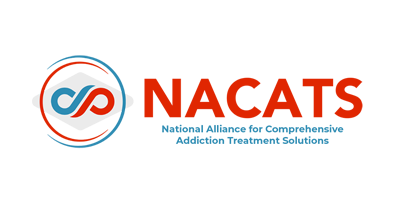
Do you use heroin but hold down a full-time job? Do you still put food on the table and care for your family? But at the same time, have there been days where you were too sick or too preoccupied with heroin and weren’t as present as you would have liked? Or perhaps you have even experienced an accidental heroin overdose, but learned from your mistakes, and continued with use anyway.
It doesn’t take long for heroin to become the center of your life. In 2022, over 200 overdose deaths were caused by natural and semi-synthetic opioids like heroin in Virginia. At ReVIDA® Recovery, we understand that heroin use may not seem like an issue at the moment, but can quickly turn to tragic circumstances. Our program utilizes medication-assisted treatment because we have seen firsthand how helpful it can be in the recovery process. But what if you are managing your heroin use? What are the criteria for being a functioning heroin addict? Is it time to seek help?
Table of Contents
Defining a Functioning Heroin Addict
A functioning heroin addict is someone who regularly uses heroin but still maintains daily responsibilities like going to work and maintaining relationships. They have not experienced any detrimental health or mental effects from their use of heroin so they continue. However, this term is outdated as we understand that heroin addiction is classified as a mental health condition in the DSM-5. A person with a functioning heroin use disorder is the proper terminology as it describes the condition without adding stigma.
How Functioning Heroin Users Vary
Functioning heroin use disorder can vary from person to person. For some, heroin use only takes place on certain days or at a certain time of day. This ensures they are able to accomplish their tasks and work throughout the week while still using heroin. Others may only use heroin on weekends in binge sessions, but not touch it throughout the week. They may also keep their use hidden from friends and family to not feel judged or shamed. No matter the instance, the person will see their use as manageable as long as they do not experience negative impacts within their life.

Signs of Functioning With a Heroin Use Disorder
Despite the person maintaining their life, over time the signs of heroin addiction will become more evident. Behavioral changes, frequent illnesses, and mental health decline are inevitable with functioning heroin use disorder, and knowing the signs to look for can help you with a loved one using heroin.
Behavioral Signs
Behavioral signs may be some of the first changes you notice in a person with functioning heroin use disorder. Heroin is a depressant, meaning it slows down the central nervous system. You may see your loved one sleeping more than usual or having a difficult time staying awake throughout the day. They may keep their use hidden from family and friends, resulting in sneaking away to find privacy to use heroin. Between uses, they may seem more irritated or easily agitated. As use progresses, they may find their finances no longer support purchasing heroin, resulting in stealing or hiding money.
Physical Signs
Heroin use can cause physical symptoms that will be noticeable over time. Those who smoke heroin may experience lung problems or frequent sinus infections. If left untreated, this can result in chronic illnesses including chronic obstructive pulmonary disease (COPD). Snorting heroin can also cause sinus infections and deterioration of the nasal cavity. Injecting heroin can lead to abscesses, skin infections, and collapsed veins. While these can be obvious, the person with functioning heroin use disorder can use different areas of the body for injection. This allows one area to heal while still being able to inject heroin.
Heroin weakens the immune system, making it difficult to heal from open wounds and also easier to contract infections. Injecting heroin comes with the risk of exposure to blood-borne illnesses like HIV/AIDS and hepatitis. Seeing poor overall physical health combined with frequent skin infections or flu-like symptoms can all be signs of a functioning heroin use disorder becoming more serious.
One of the most serious and life-threatening physical signs is experiencing a heroin overdose. Only using heroin minimally will cause tolerance to build slowly. The person may think they can take more heroin than they are used to and overwhelm the body. This leads to an overdose which causes breathing to slow and possibly stop. Heroin is also often laced with other substances, including fentanyl. Because fentanyl is also an opioid, the risk of an overdose increases exponentially. If a heroin overdose is ever suspected, seek medical attention immediately.
Psychological Signs
Functioning heroin use disorder can make the person less likely to notice dips in mental health, but as time goes on, they will become prominent. As physical signs appear, the person may have to call out of work or miss important family functions. This transpires into guilt and shame, taking a toll on mental health.
Heroin changes the way neurotransmitters work within the brain, causing them to only respond when heroin is present. The brain no longer releases natural neurotransmitters to respond to stress or pleasure, making heroin the only way to achieve these feelings. This is how functional heroin use turns into a heroin use disorder, further causing symptoms of depression, anxiety, and possibly suicidal ideation. Having thoughts of suicide is a serious mental health concern and should be treated as a medical emergency.
Long-Term Consequences of Functional Heroin Use
As we mentioned above, heroin use can alter the way the brain functions over time, and even if the person is in control of their use now, the tables can turn quickly. As use continues, job performance will decrease, resulting in financial strain. This can lead to problems in family relationships and poor mental health. The body will also feel the effects of long-term heroin use, even if it was functioning normally in the beginning. Even if heroin use starts at once per week, there is no way to guarantee that it will not turn into more and result in a heroin use disorder.
How to Help a Loved One With a Functioning Heroin Use Disorder
The topic of heroin use disorder can seem difficult to bring up with your loved one, especially if they are functioning normally otherwise. Remember that they are a person first and a person you love. It is okay to be firm and direct about how their use is affecting you, but also be engaged and listen to their feelings.
Do not use stigmatized language – phrases such as “you are a heroin addict,” or “once an addict always an addict.” This language provides no help to the situation and will often result in the person shutting down. Treating them with respect while setting boundaries that you feel are important can help them realize it may be time for help. If they decide to get help, work with them on finding a program and remind them you will be there for support. Recovery can be scary, especially at first, and reminding your loved one you will always be there will encourage them to stick with their program.

Get Help for Functional Heroin Use Disorder in Virginia
While your loved one may feel their functional heroin use disorder is not causing any problems, it is only a matter of time before side effects can cause serious or life-threatening complications. Finding heroin addiction treatment is the first step to prevent these complications and begin the path to healing. Therapies are a large component of treatment, and developing healthy coping skills can allow your loved one peace of mind when facing stressful situations. The journey of recovery may seem scary now, but breaking free from heroin and rediscovering a passion for life will be the building blocks for your loved one’s success.
If you or someone you love is living with a functioning heroin use disorder, it’s not too late to seek help now. ReVIDA® Recovery is here with a flexible outpatient program to keep your work schedule while you receive the treatment you need. We offer same-day appointments and accept Medicaid insurance. With locations throughout Virginia and Tennessee, we bring ease of access to care right to you. Call us today at 423-631-0432 to learn more or get started today.
Reclaim your life.









